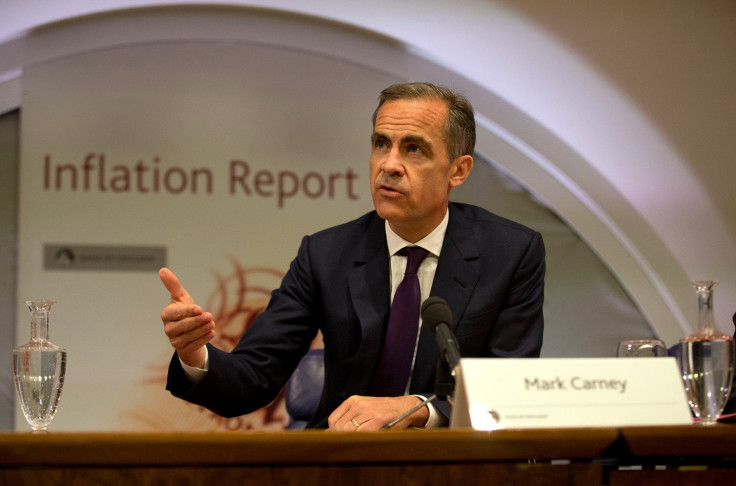'Super Thursday': Bank of England splits on interest rates as UK braces for increase

Britain moved one step closer to higher interest rates after the Bank of England's Monetary Policy Committee split for the first time, it was revealed today (6 August). The nine member committee voted to keep rates at historic lows of 0.5% but the decision saw one member, Ian McCafferty, vote for a rise, breaking 2015's otherwise continuous unanimity.
Experts had expected at least two dissenters, indicating that three would put the Bank of England firmly on course for an increase in February 2016.
Bank of England governor Mark Carney, speaking after the data was released, said a rate rise "is drawing closer" but adding that the "path is more important than the timing of the first increase".
The chances of an interest rate hike before the end of 2015 have "receded markedly", according to Howard Archer of IHS Global Insight, with an increase more likely in 2016.
Jane Foley, senior currency strategist at Rabobank, said: "While the MPC will lay the foundation for an future interest rate hike, it is still likely to be some months before a the majority of MPC members vote in favour of a rate hike."
Dubbed "Super Thursday" by economists, the decision was accompanied by the minutes of the meeting and the bank's Quarterly Inflation Report for August. Business leaders have said a rate rise would be "rash, premature and foolhardy", saying it could jeopardise the economic recovery.
Despite the 8:1 decision Gillian Guy, chief executive of Citizens Advice, warned homeowners to get ready for an eventual rise.
She said: "Households need to be primed and ready for a rise in interest rate. Many people are just about managing financially which means even a small interest rate rise can tip them over the edge."
Interest rates have stood at 0.5% for 77 consecutive months.
Matthew Ryan, strategy analyst at Ebury, said: "A Bank of England rate hike in 2015 would provide strong support for sterling back towards the 1.60 level against the US dollar, and 1.50 versus the euro by year-end.
"This would have a mixed impact on UK businesses with those who import likely to reap the benefits from a rally in the pound while exporters may find the opposite to be true as products become more expensive for those across Europe and the US."
© Copyright IBTimes 2025. All rights reserved.





















